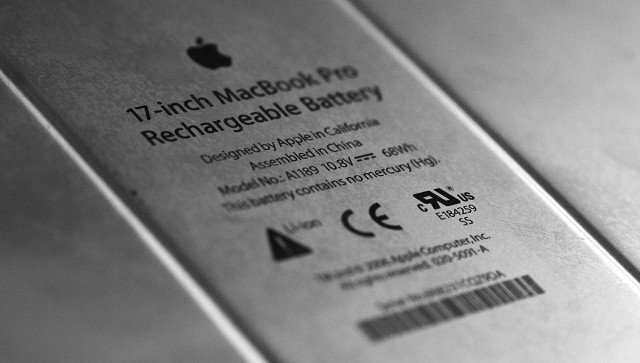
Some bit of software within Mountain Lion indeed appears to noticeably reduce battery life for Apple's portable Macs. Following on numerous reports lodged in Apple's support forums, we did some additional testing using our Retina MacBook Pro review unit, which seemed to lose approximately 38 percent of its previous 8-hour runtime after installing Mountain Lion. Apple support technicians are continuing to gather evidence from users reporting problems, though at least one user has been told that an update from the Mac App Store should address the issue.
As we noted last week, numerous MacBook, MacBook Pro, and MacBook Air users had begun reporting that the battery life reported by their systems was significantly lower after upgrading to Mountain Lion. In some cases, they were seeing nearly half the amount of time that was reported previously under Lion. The batteries themselves also seemed to drain noticeably faster, despite the system reporting that capacity had not been affected.
Following our coverage, several Ars readers confirmed via comments and tweets that they were experiencing similar problems. But some claimed that their battery life under Mountain Lion is as good as or better than it was under Lion, so the problem does not appear to affect all users.
Some users in Apple's forums reported potential fixes, including repairing disk permissions or access control lists, disabling or reinstalling Dropbox, or resetting GateKeeper to allow apps to install from any source. These fixes didn't work for all users, but together, they could be a sign of a problem somewhere between Mountain Lion's security systems—like sandboxing and file quarantine—and the file system.
Our own testing revealed similar (and significant) drops in battery runtime after installing Mountain Lion. In previous tests, we were able to regularly achieve just over 8 hours of use by relying solely on our Retina MacBook Pro's integrated Intel HD4000 GPU. Performing the same "real-world" test using the same software applications and usage pattern, we never got the Retina MacBook Pro to run for more than a few minutes past 5 hours after a full charge.
Our test method isn't strictly scientific, of course, but we performed it several times and got similar results each time. I used the machine repeatedly for my daily workload, with Safari, Chrome, Twitter, iChat, Colloquy, TextEdit, Photoshop, Skitch, Mail, and Outlook running, as well as a few background processes like Dropbox and gfxCardStatus. WiFi was turned on, the machine was located in the same office as my Airport Extreme base station, and Bluetooth was turned off. Screen brightness was set to half (8/16 "pips" or "dots" on the brightness indicator) as in previous testing.
During testing, I periodically launched Activity Monitor to gauge CPU use. Typically, the quad-core processor wasn't taxed beyond 5 percent capacity, except for occasional 10-20 percent spikes when loading webpages, reading or writing files, or other activities. Unexpected file system or network access, or less efficient use of the GPU, could cause additional power drain without showing significant CPU use.
One Apple support forum user who was contacted by Apple suggested that the cause was software-specific, and not related to any hardware or faulty batteries. "I can confirm this is definitely a software (OS) issue, as the guy that was dealing with me said that an update will be issued via the [Mac App Store] as soon as they can work a fix," user stevo_c wrote on Monday.
Apple was not able to confirm to Ars that a fix was forthcoming. That said, we are forwarding our testing information to the company's software team for review. We will update if Apple has an official statement.
reader comments
57